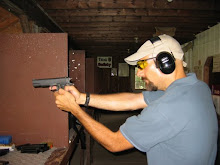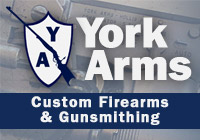On May 19, 1986, the Firearms Owners' Protection Act (FOPA) was signed into law.[1] The first comprehensive redraft of the federal firearm laws since 1968,[2] FOPA was predictably lauded as "necessary to restore fundamental fairness and clarity to our Nation's firearms laws"[3] and damned as an "almost monstrous idea" and a "national disgrace."[4] The controversy was not limited to the rhetorical. Seven years passed between FOPA's introduction and its Senate vote;[5] the House vote required passage of a discharge petition[6] --only the eighth to succeed in the last twenty-six years.[7]
The FOPA, in a nutshell, made it easier to transport firearms across state lines - but it also contained the Hughes Amendment, which fixed in time the transfer of machine guns. Anything made after the FOPA cannot be transfered to a civilian (non-military or LEO) except in very limited instances (manufacturers and dealers of machine guns are the only exception). It was an 11th hour addition to a bill that many found distasteful, yet impossible to stop from becoming law. In the final moments of debate on the FOPA, Hughes added in the amendment in a last-ditch effort to something, anything to lessen the blow of FOPA to the anti-gun crusade.
Ever since the National Firearms Act of 1934, honest-to-goodness "automatic" weapons have been tightly regulated. The $200 tax added to a machine gun might not seem like much today, but in 1934 dollars it was significant: the average cost of an automobile was only slightly more than double that. It would be akin to about a $7,500 tax today. It's hard to figure just what the authorities thought adding the tax would do - the only people who could afford machine guns when they were unregulated were the very rich (including bootleggers), and that continues today.
What the Hughes Amendment did was to drive the cost of fully automatic weapons well beyond the reach of most people. It was far-reaching in its aim, and devilish in its inception - while it does not prohibit ownership of machine guns, it makes finite the number of available machine guns to the gun-owning public. A new full-auto AR-15 based rifle costs between $1,000 and $1,500. A transferable M-16, which by definition today is an antique (25 years old), generally runs between $10K and $15K. They've gone from costing about a half to a third what a car costs to about equal.
The disturbing part is that this is clearly unconstitutional - the Second Amendment, despite what the antis want us to think, is not about hunting, it's about making sure that the average citizen has access to the same arms as the military. The NFA of 1934 limited that access, and the Hughes Amendment limited it further. We're coming up on 80 years of having significant restrictions placed on our Second Amendment rights - an entire lifetime, literally.
Thank goodness there are people like Alan Gura and the Second Amendment Foundation (link to the right if you're in a donatin' mood) fighting to restore at least some of these rights...
That is all.







4 comments:
It is estimated that there are between 100,000 and 200,000 pre-1986 machine guns on the NFA list. (The BATF doesn't know how many)
In addition to machine guns the NFA covers suppressors and short barreled rifles and shotguns.
Given that the NFA was created to effectively ban entire categories of firearms I don't see how it can stand a Heller/McDonald challenge but then I'm not a lawyer either. I'm sure the Supreme Court will find a reason once they start looking.
922o, Hughes, has been beaten in several court cases but always overruled. One of the most logical arguments is that NFA is a tax law, and if the taxmen aren't interested in taking $200 for a new machine gun, then you can go make your machine gun without paying the tax - because there are no other regulatory laws on the books.
FOPA ended the ban on mail order ammo the '68 GCA enplaced.
So the FOPA was want allowed all that cheap ammo in the 90's.
The full auto crowd call hate FOPA as if it was the devil BUT they benefited the most with the ammo and interstate transport laws of FOPA.
@ Wally - see US v Rock Island Armory and US v Dalton; those are standing district court decisions. These decisions (to my layman's mind) attack 922(o) on the basis that the NFA was a revenue-generating law, and since the ATF refuses to collect revenue, the ban on machineguns is unconstitutional and therefore void.
@Clint - Full auto fans don't hate FOPA, we hate Hughes. And I (for one) would gladly trade mail-order ammo for machine guns.
Post a Comment